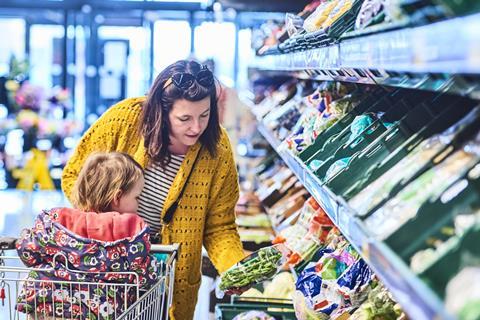
Top story
Grocery price inflation hit single digits for the first time in 16 months in October as overall grocery growth continues to be driven by higher pricing.
According to Kantar’s monthly grocery market share figures, grocery inflation fell back to 9.7% in the four weeks to 29 October 2023, the first time the rate has dropped to single digits since July 2022.
Take-home grocery sales over the same period continue to lag behind inflation, rising by 7.4% compared with last year.
Fraser McKevitt, head of retail and consumer insight at Kantar, commented: “Grocery price inflation has finally dropped into single digits after 16 months of double-digit growth, marking a big milestone for the British public and retailers. While the drop to 9.7% is positive news and something of a watershed, consumers will still be feeling the pinch. We’re only seeing year on year price falls in a limited number of major categories including butter, dried pasta and milk.”
McKevitt said retailers were continuing to look at ways of softening the blow for shoppers and slowing the rate of price rises, which has included a significant rise in promotions.
“Every single one of the grocers increased the proportion of sales through deals versus last year, which is something that has only happened on one other occasion in nearly 10 years,” he said.
Consumer spending on promotions has now hit 27.2% of total grocery sales – the highest level since Christmas last year.
Meanwhile, own label lines continue to grow ahead of brands as they have for every month since February 2022, with the latest four weeks showing a sales boost of 8% for these lines.
However, the gap between own label and branded goods is at its narrowest since spring last year, with branded sales increaseing by 6.7% in the latest month.
Lidl was again the fastest-growing retailer this month with sales over the 12 weeks up by 14.7%. Fellow discounter Aldi sat beside Waitrose as one of only two grocers to increase its number of shoppers year on year, with the pair growing sales by 13.2% and 5.4%.
Sainsbury’s was the fastest-growing traditional supermarket this month, with sales up 10.1%, while Tesco gained share for the fourth consecutive month as year-on-year sales growth reached 9.5%.
Morrisons has now been back in growth for seven months, with sales in the latest period up by 3.2%, while Asda was up just 2.6% in the period.
Co-op’s sales grew by 5.2%, the fastest rate since March 2021, Iceland was up 2.6% while Ocado grew its market share with growth of 12.6%.
For the 12-week period, grocery inflation now stands at 10.7%, with prices rising fastest in markets such as eggs, sugar confectionery and frozen potato products.
Morning update
UK retail spending fell back in October, raising fears of weak consumer confidence in the run-up to Christmas.
The BRC-KPMG retail sales monitor for October found that UK total retail sales were up 2.5% in October, which is a slowdown from 3.1% over the three-month period and 12-month average growth of 4.2%.
Food sales increased 7.9% on a total basis over the three months to October, albeit this is below the 12-month average growth of 8.5%.
Non-food sales fell back 1% during the month, with in-store non-food down 0.1% over the three-month period and online non-food sales down 2.5% in October.
BRC CEO Helen Dickinson commented: “Retail sales growth slowed as high mortgage and rental costs further shook consumer confidence. Many households are also delaying their Christmas spending in the hopes they can grab a bargain in the upcoming Black Friday sales. The cost of living squeeze meant more was spent on lower-price indulgences, such as beauty products – the so-called ‘Lipstick Effect’. Meanwhile, the arrival of some colder weather helped to boost fashion sales, particularly for outdoor wear.
“Retailers continue to invest in lowering prices and streamlining their operations, part of their commitment to delivering an affordable Christmas for their customers. But this is put at risk by the £470m-per-year rise in business rates facing retailers next year. The Chancellor must freeze rates in the upcoming Autumn Statement, to prevent extra cost pressure, pushing up prices for struggling consumers.”
Paul Martin, UK head of retail at KPMG, added: “Retail sales remained weak in October with growth of just 2.5%. Food and drink and health and beauty categories continued to drive sales, while a mild October saw consumers put off shopping trips to replenish winter wardrobes. Online sales continued to struggle, with negative sales growth recorded in every category other than health and other non-food. This could herald the most competitive Black Friday period that we’ve seen in a while.
“Whilst consumers are now operating in a lower inflationary environment compared to October last year where inflation peaked at over 11%, there is no doubt that the last 12 months have taken a toll on confidence and their ability to spend. Coupled with a higher interest rate environment, dwindling Covid savings and the heating coming back on, beleaguered consumers are thinking very carefully about how they spend their money. As a result, the strong demand that has kept some retailers afloat over the last 18 months is now falling away.
“Although the retail sector has done some sterling work around controlling their own cost environment, the health of the industry is at the mercy of macro demand. Retailers are facing a challenging Christmas, competing for a shrinking share of wallet, driven by promotions that will no doubt cut into already stretched margins. With spending levels expected to be much more muted this year, the run up to Christmas could be the most challenging we’ve seen since pre-pandemic days.”
IGD CEO Sarah Bradbury said: “October’s food and drink sales enjoyed a slight increase in volume and value sales compared to last year, but value sales were slightly down on September’s performance. As the country enjoyed warm weather at the start of the month the market benefited with a slight increase in footfall. Further good news came as inflation continued to fall against the steep increases seen a year ago, with shoppers benefiting from reduced prices, particularly from discounts offered by retailers’ loyalty schemes.
“As inflation fell again, more shoppers expect food prices to fall in the year ahead – up to 12%, compared with 8% last month and 3% in October ‘22. However, some 67% expect prices to rise in the year ahead and IGD’s food price inflation forecast is for prices to rise, albeit at a slower rate, indicating there are still challenges ahead for the industry.”
Elsewhere, Naked Wines has issued a further profits warning and announced the departure of CEO Nick Devlin.
The group has downgraded full-year guidance amid weaker than expected trading in the US.
It had previously announced that Q1 trading had started slower than expected, with revenues down 18% versus the prior year as sales to new customers reduced as it cut marketing to target profitability.
It said that while Q2 trading in the UK and Australian markets has been broadly in line with the forecasts supporting prior guidance, trading in the US during Q2 and October has been weaker than anticipated.
In particular, the repeat business has fallen short of targeted revenues and contribution margins.
Therefore, in the first half overall sales are expected to be down 17%, with a 20% drop in the US, 19% in Australia and 11% in the UK.
Consequently, Naked has cut full-year growth expectations to -12% to -16%% (previously -8% to -12%) and adjusted EBIT forecast cut to £2m-£6m (previously £8m-£12m).
Meanwhile, Devlin has agreed with the board that he will step down from the board and his role as CEO with immediate effect.
Rowan Gormley, founder and chairman, will take the role of executive chairman on an interim basis until a successor is appointed.
Devlin will continue in the role of president, Naked Wines USA through the peak trading period before leaving the group fully.
Gormley commented: “It is disappointing to be warning of underperformance against a recent forecast. While trading in the UK and Australia has been in line with the Board’s expectations, current trading in the US has fallen well behind, both in terms of sales and margin. Customer attrition remains at historically low levels.
“My view is that this shortfall is largely to do with execution, which in turn is largely due to Nick Devlin splitting his time across both the role of CEO and US president.
“To resolve this situation Nick has agreed to step down as CEO and I will move to executive chairman while we recruit a replacement. Nick has agreed to help with the transition and stay on as US president through peak.
“I am sad to see Nick go, but his legacy remains. Naked Wines revenue has grown 50% since he took the CEO role, and Nick leaves with a lot of the hard turnaround work completed, including testing some exciting improvements to our customer proposition, which we are testing at scale right now. He goes with our best wishes.”
Food and retail giant Associated British Foods shook off “significant inflationary and other macro-economic pressures” to grow sales and profits during its financial year.
Announcing results for the year to 16 September, ABF said group revenues were up 16% year on year at actual exchange rates (15% constant currency) to £19.8bn.
This increase in revenue was largely due to price increases across the businesses to mitigate high levels of inflation. Albeit it noted that its level of inflation eased as the financial year progressed.
Adjusted operating profit rose to £1.5bn, 5% higher at actual exchange rates and 4% at constant currency.
Operating profit for the group of £1.4bn was 17% ahead at actual rates and is stated after exceptional charges of £109m (down from £206m in 2022).
On a divisional basis, grocery revenues were well ahead of last year, up 12% to £4.2bm, largely as a result of price increases to mitigate inflation.
Its international brands – Twinings, Ovaltine, Blue Dragon, Patak’s, Jordans and Mazzetti – generally traded well, with particularly strong sales in the US.
In the UK, the performance of Allied Bakeries improved considerably due to higher volumes and stronger pricing and the financial losses in this business reduced as a result.
Its ingredients businesses also had a “very good” year with revenues and profit significantly ahead. Agriculture had a more challenging year with declines in the compound feed markets in the UK and China.
Sugar had a good year, with sales up 26% to £2.6bn, considering the impacts of challenging weather in both Europe and Africa.
British sugar production was significantly down after poor weather conditions reduced beet yields and the business had to obtain expensive alternative sources of supply to make good the resulting production shortfall. Illovo, its African sugar business, had a much improved year and made further progress in developing local routes to market.
Full-year revenues at its Primark retail arm rose significantly, increasing by 17% to £9bn at actual rates and 15% on a constant currency basis.
Trading was much better than the group expected at the start of the year when volatile inflation had threatened to disrupt consumer spending. However, the strength of the Primark offer, and its decision to pass on only part of our input cost increases, helped mitigate that impact.
Space expansion continued, both in Europe and the US, while it continue to create a more coherent and powerful digital platform for Primark with investment in numerous capabilities including completion of the rollout of the enhanced website in all markets, and the extension by range and geography of its UK Click + Collect trial.
CEO George Weston said: “At the outset of this financial year, the group was facing very significant economic challenges caused in part by major geo-political events. Looking back on the year, it is clear to me that the group performed extremely well and is as a result now well positioned for the year ahead.
“Trading at Primark was excellent under the circumstances. At the beginning of the year we implemented selective price increases partially to protect profitability, on the grounds that the significant input cost inflation was temporary. That careful pricing delivered as intended, with customers continuing to shop with us enthusiastically. Profitability in our food businesses moved ahead as a result of the appeal of our products and the strength of our brands, both of which supported us in the recovery of high levels of input cost inflation without disrupting our customer relationships.
“Although consumer demand remains uncertain, Primark is as well placed as it has ever been. We continue to believe that Primark’s offer is very attractive not just to existing customers but also to new customers engaged by our digital platform, new store openings, and word of mouth which remains as powerful as ever. With Primark margin now moving back to its historic levels, we view the future for this business with confidence. Our food businesses are also in very good shape, and our sugar business especially should see much better profitability in the year ahead.”
Hilton Food Group has announced a “robust financial performance” in the third quarter as it saw global volume growth and the turnaround of its UK seafood business continues.
Announcing a trading update for the third quarter to 29 October, the group said that the “robust financial performance and strong operational progress” seen in the first half of the year continued into the quarter, with trading in line with the board’s expectations.
Sales in the period is ahead of the prior year, which includes the continued impact of raw material price increases, while also reflecting the continued strong performance in APAC, strength in its core meat category, and the benefits of a full year of trading of Foppen following its acquisition in 2022.
In APAC the group has continued to see strong volume and revenue growth from the three facilities it operates in Australia and its multi-protein food park in New Zealand.
Meanwhile, its UK Seafood turnaround continues to deliver against our operating performance targets, with the business delivering operating profitability in Q3 and also on track to do so for the full year.
In the wider UK & Ireland business, in Q3 it delivered revenue and volume growth compared to the prior year.
Meanwhile, in Europe, revenue is ahead of the same period in the previous year benefiting from continued growth in its Foppen business and its Central European convenience food business.
Hilton Foods continues to trade in line with Board expectations. The Group’s financial position remains strong with leverage at comfortable levels.
“Our industry leading technology and outstanding multi-category food products provide us with a strong platform for sustained growth and we continue to explore opportunities in our existing and new markets as we deliver on our strategy of becoming the international protein partner of choice,” it stated.
The group is today hosting an analyst and investor day at its Hilton Foods UK production facility in Huntingdon.
On the markets this morning, the FTSE 100 is broadly flat again at 7,419.4pts.
Risers include ABF, up 5.8% to 2,228p, Virgin Wines, up 4.3% to 36.5p and Hilton Food Group, up 3.6% to 669p.
Fallers include Naked Wines, down 33% to 30.1p, C&C Group, down 1.4% to 141.2p and Kerry Group, down 1.4% to €75.46.
Yesterday in the City
The FTSE 100 kicked off the week flat at 7,417.8pts.
Kitwave lost 5.7% to close at 250p after announcing the forthcoming retirement of its CEO.








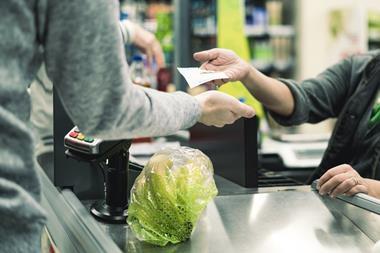
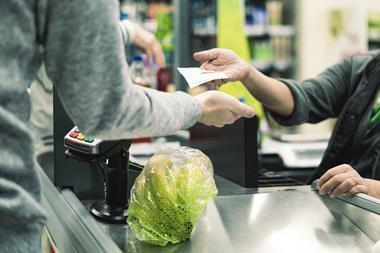
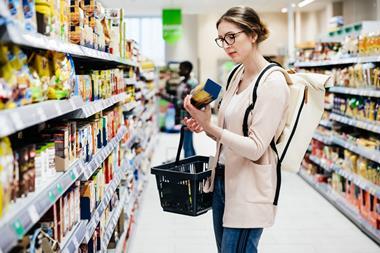

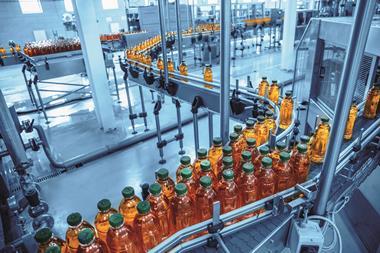
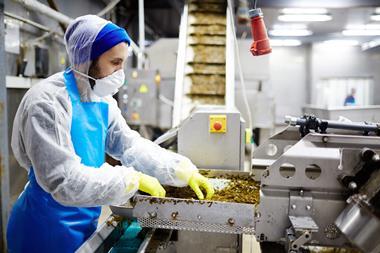
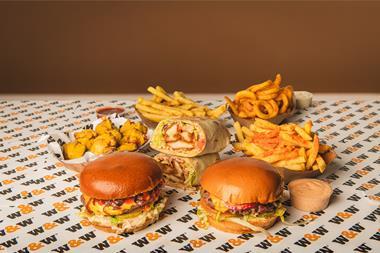
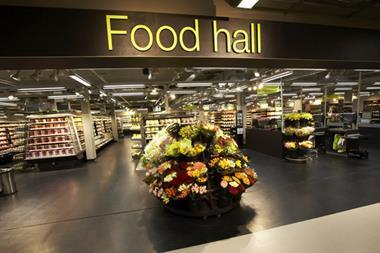
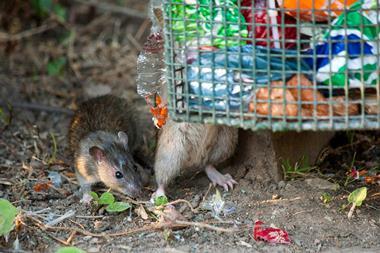

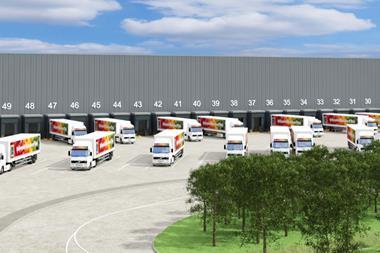
No comments yet